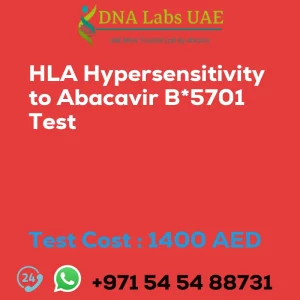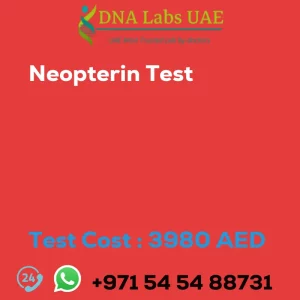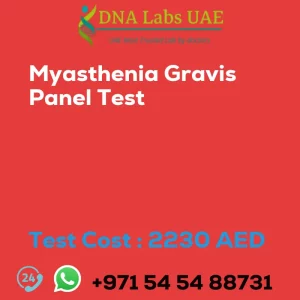IMMUNE COMPLEX DETECTION BY C1q BINDING Test
Test Name: IMMUNE COMPLEX DETECTION BY C1q BINDING Test
Components: Price 1460.0 AED
Sample Condition: 2 mL (1 mL min.) serum from 1 Red Top (No Additive) tube. Do not use SST gel barrier tubes. Separate serum and freeze within 1 hour of collection. Ship frozen. DO NOT THAW. Duly filled Test Send Out Consent Form is mandatory.
Report Delivery: Sample by 7th of the month; Report after 2-3 weeks
Method: Enzyme Immunoassay
Test type: Autoimmune disorders
Doctor: Physician
Test Department: OS
Pre Test Information: Duly filled Test Send Out Consent Form is mandatory.
Test Details
The immune complex detection by C1q binding test is a laboratory test used to detect the presence of immune complexes in the blood. Immune complexes are formed when antibodies bind to antigens, such as bacteria or viruses, in the body. These immune complexes can contribute to the development of autoimmune diseases and other immune-related disorders.
The C1q protein is part of the complement system, which is a group of proteins that helps to destroy foreign substances in the body. When C1q binds to immune complexes, it triggers a series of reactions that lead to the removal of these complexes from the bloodstream.
In the immune complex detection by C1q binding test, a blood sample is taken from the patient and mixed with a solution containing C1q. If immune complexes are present in the blood, the C1q protein will bind to them. The bound immune complexes can then be detected and quantified using various laboratory techniques, such as enzyme-linked immunosorbent assay (ELISA) or immunofluorescence.
The results of the test can indicate the presence and quantity of immune complexes in the blood, which can help in the diagnosis and monitoring of autoimmune diseases and other immune-related disorders. However, it is important to note that the test is not specific to any particular disease and should be interpreted in conjunction with other clinical findings and tests.
Overall, the immune complex detection by C1q binding test is a valuable tool in the evaluation of immune system dysfunction and can aid in the diagnosis and management of various immune-related conditions.
| Test Name | IMMUNE COMPLEX DETECTION BY C1q BINDING Test |
|---|---|
| Components | |
| Price | 1460.0 AED |
| Sample Condition | 2 mL (1 mL min.) serum from 1 Red Top (No Additive) tube. Do not use SST gel barrier tubes. Separate serum and freeze within 1 hour of collection. Ship frozen. DO NOT THAW. Duly filled Test Send Out Consent Formis mandatory. |
| Report Delivery | Sample by 7th of the month; Report after 2??3 weeks |
| Method | Enzyme Immunoassay |
| Test type | Autoimmune disorders |
| Doctor | Physician |
| Test Department: | OS |
| Pre Test Information | Duly filled Test Send Out Consent Formis mandatory. |
| Test Details |
The immune complex detection by C1q binding test is a laboratory test used to detect the presence of immune complexes in the blood. Immune complexes are formed when antibodies bind to antigens, such as bacteria or viruses, in the body. These immune complexes can contribute to the development of autoimmune diseases and other immune-related disorders. The C1q protein is part of the complement system, which is a group of proteins that helps to destroy foreign substances in the body. When C1q binds to immune complexes, it triggers a series of reactions that lead to the removal of these complexes from the bloodstream. In the immune complex detection by C1q binding test, a blood sample is taken from the patient and mixed with a solution containing C1q. If immune complexes are present in the blood, the C1q protein will bind to them. The bound immune complexes can then be detected and quantified using various laboratory techniques, such as enzyme-linked immunosorbent assay (ELISA) or immunofluorescence. The results of the test can indicate the presence and quantity of immune complexes in the blood, which can help in the diagnosis and monitoring of autoimmune diseases and other immune-related disorders. However, it is important to note that the test is not specific to any particular disease and should be interpreted in conjunction with other clinical findings and tests. Overall, the immune complex detection by C1q binding test is a valuable tool in the evaluation of immune system dysfunction and can aid in the diagnosis and management of various immune-related conditions. |








